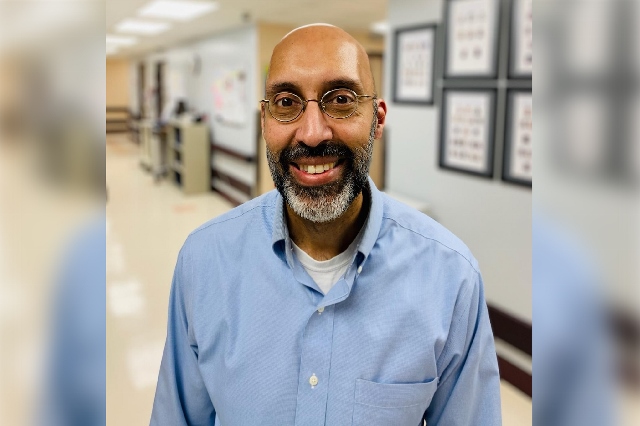What’s causing my patient’s symptoms? Early in his medical career, Gurpreet Dhaliwal understood that accurately answering that question was the foundation of effective, efficient, and equitable medical care.
Doctors get the diagnosis right nine times out of 10, with individual and systems factors accounting for the 10 percent difference, said Dhaliwal, one of the country’s most respected and skillful diagnosticians. He is known for demonstrating his craft on stage, impressing medical professionals with his spot-on analysis of complex cases.
“I’m really interested in how doctors think and how doctors get better at thinking,” he said in an episode of The Curbsiders, an internal medicine podcast. “Someone who loves their craft so much that they are on the path to perfection is both serene and inspiring. It’s the mindset I hope we would all have with our work.”
Dhaliwal will offer 10 approaches clinicians can adopt in the quest to become better diagnosticians in a public lecture at 5:30 p.m. Nov. 17 at the Fralin Biomedical Research Institute at VTC. The lessons and approaches have implications for reasoning, judgment, and decision-making that apply to all professions and will interest people from a wide range of backgrounds.
The talk is part of the Maury Strauss Distinguished Public Lecture series, named for Maury Strauss, a Roanoke businessman and longtime community benefactor who recognized the importance of bringing scientific thought-leaders to Roanoke.
The public lecture will be held in the Fralin Biomedical Research Institute at 2 Riverside Circle on Virginia Tech’s Roanoke campus. Attendees are invited to a 5 p.m. reception preceding the talk, which is also available via Zoom.
“Dhaliwal’s lessons can be applied to medicine, research, business, and many other areas of life,” said Michael Friedlander, Virginia Tech’s vice president for health sciences and technology and executive director of the Fralin Biomedical Research Institute. “We are fortunate to be able to bring his insights and approach to the entire Roanoke community and are inspired by the intellectual curiosity evident in his work. We are fortunate to be able to share his lessons with the institute, medical and graduate students, local clinicians and the wider community.”
Dhaliwal acknowledges the challenge. He said he realized that to improve, he needed to expose himself to more medical cases. “So I started thinking about, what can I do to put more cases in front of myself? This is an odd question because docs are really busy.”
He drew inspiration from a variety of fields, Dhaliwal said. “In chess, music, or sports, they train all day long and then have an hour of performance once a week, and ours is the exact opposite. We’re performing all day long.”
One strategy is finding how to eke out an hour or more for training a few times a week. “We owe it to ourselves and we owe it to our patients to get better and better.”
Dhaliwal is a clinician-educator and professor of medicine at the University of California, San Francisco. He is also the site director of the internal medicine clerkship at the San Francisco Veterans Affairs Medical Center, where he teaches medical students and residents in the emergency department, urgent care clinic, inpatient wards, outpatient clinic, and morning report. His academic interests are the cognitive processes underlying diagnostic reasoning and clinical problem-solving and the study of diagnostic expertise.

